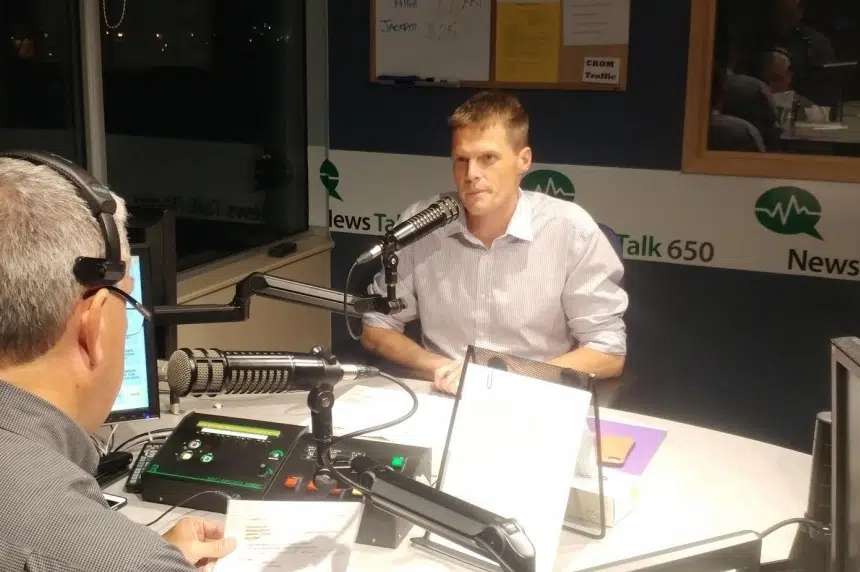As weak commodity prices continue battering the provincial budget, some are calling on the Sask. Party to run a deficit to avoid large spending cuts or tax hikes.
Premier Brad Wall opened the Saskatchewan Urban Municipalities Association’s annual meeting Monday with a speech forecasting a $1.2-billion deficit.
The new projection represents about 8 per cent of the province’s budget, based on 2016-17 expenditures of $14.46 billion.
Wall went on to warn all options were being considered to balance the books – including tax hikes and deep cuts to services.
The premier noted one option could see as many as 4,900 jobs cut from health care.
Saskatoon Mayor Charlie Clark told 650 CKOM’s Brent Loucks he was concerned at the premier’s warning that there would be less money available to cities, as PST revenues have also declined.
He said Saskatoon has been a major driver of the provincial economy, and the city has budget challenges of its own.
“In Saskatoon, we’ve added 50,000 people in the last 10 years. That’s the equivalent of 10 cities the size of Warman, just in Saskatoon. So there have been growth costs that have gone along with that,” he said.
Clark said Saskatoon will continue to do its part, but he doesn’t want to see the province avoid borrowing by imposing cuts so deep they compromise quality of life.
“We’re trying to make the case: ‘Work with us. We’ll work with you – but don’t erode our ability to provide those basic services to the public,'” he said.
In his speech, Wall said his government would be reviewing current PST exemptions on things like fuel. Clark said he supported the move.
“Hundreds of millions of dollars are represented there, that I think are an opportunity to reconsider whether that’s actually providing a stimulus to the economy,” he said.
‘Managed deficit approach’
Mark Cooper, president of the Saskatchewan Construction Association, was in Saskatoon for the SUMA meeting.
He told Loucks the measures needed to deal with such a large deficit amount to potentially growth-crippling tax hikes, or service cuts so deep they risk driving people out of the province.
With such unpalatable options, Cooper said it would be better for the Sask. Party to back off on its promise to balance the books this year.
“Deficits aren’t good. Nobody likes debt or deficits. But the reality in our own personal finances is: sometimes you need to fix the furnace. So you’re going to pay those costs over a period of two years, or maybe three years to get that done.”
Cooper said while he supported a modest deficit, it was also important to have a timeline to get back into the black.
“What we’re suggesting is a managed deficit approach that would see the province move to five-year budgeting cycles that would see the province produce net surpluses over the balance of those five years,” he said.







